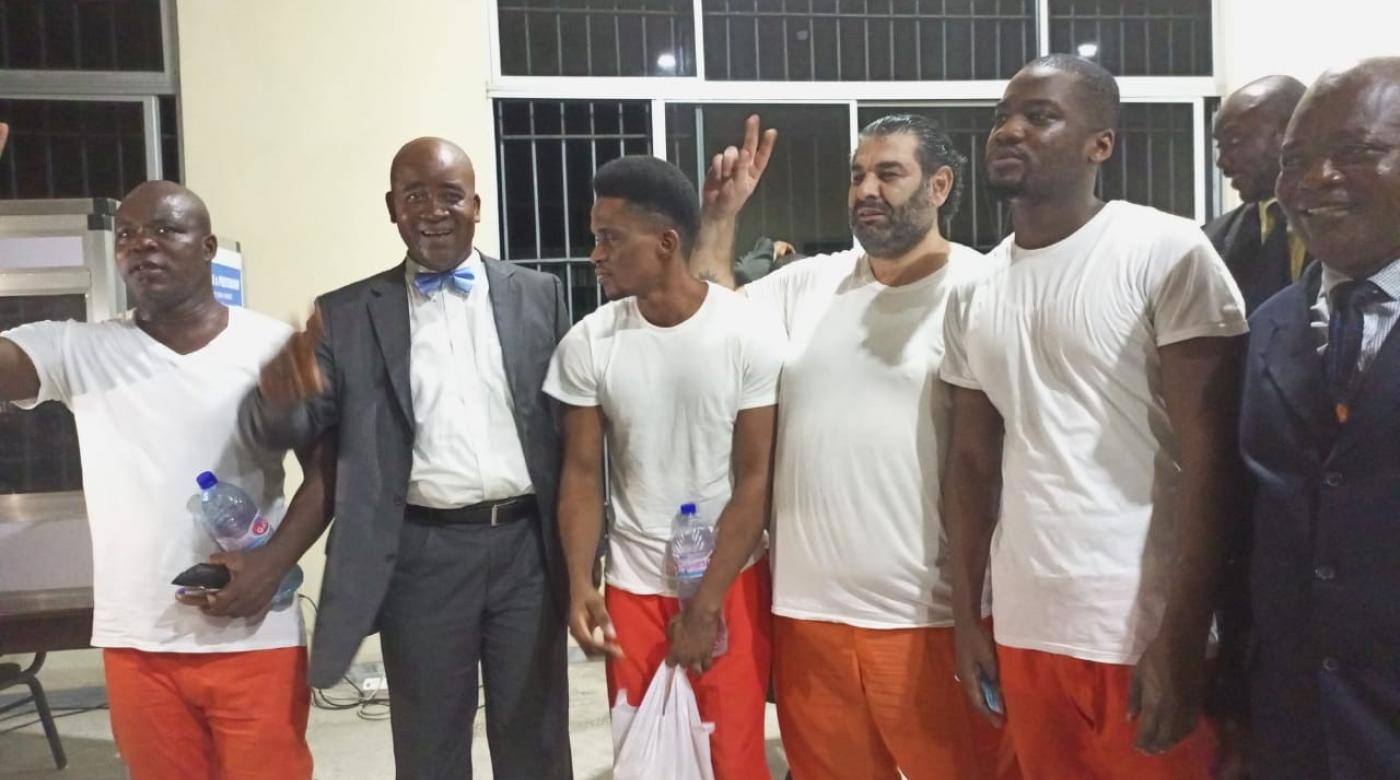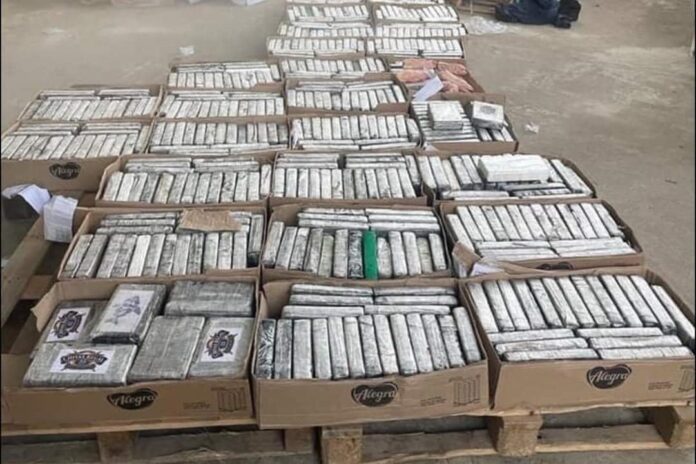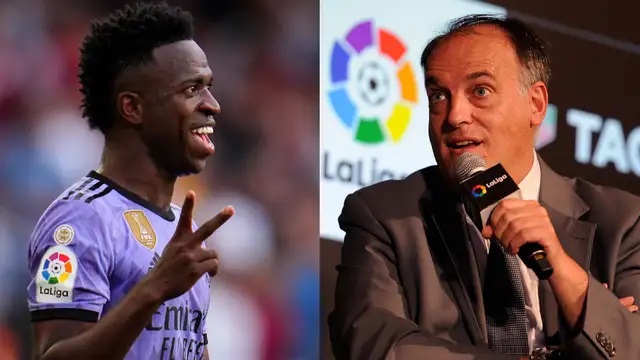An opinion by Moncio Robert Wilmot Kpadeh
I believe as a nation still reeling from the blistering consequences of war, we could make do with deficiencies in other aspects of our national life, but not with a deficient and debauched legal system. If we continue to permit injustice to thrive over justice then doom is the fate of our nation.
Our courts, against all odds, MUST be transparent, accountable, and impartial as the arbiter of justice within the borders of our country. Brit philosopher Emmanuel Kante postulates that civilization begins with adherence to the law in all circumstances. If we are truly a civilized nation, as we claimed, then justice must reign in Liberia.
The recent ruling in the $100M drug case is grabbing the attention of the world as the greatest travesty of justice (Latin: deridiculum justitiae) in modern legal history. Jurists, legal scholars, and commentators as well as justice advocates are shocked and wrecked by the ruling acquitting the drug suspects of all charges, including money laundering, illegal possession and importation of controlled drugs, and criminal conspiracy.

The ruling which may be etched in the ‘Guinness Book of Records’, considering the gravity of its mysterious nature, was handed down by Criminal Court “C” at the Temple of Justice after months of a Jurey trial. In addition to his rather shocking and chilling ruling, Judge, Blamo A. Dixon also ordered that the state return the US$200,000 confiscated from the drug suspects when they were being raided by state security forces. The jurors unanimously claimed the drug suspects are not guilty of any of these charges. Unimaginable and disgraceful!
Law is all about evidence and the ruling of a judge must largely be defined by the solidity of evidence adduced by either side within a case–in line with the codified texts within the statutes for civil law country whereas for a common law country, from case laws. In this particular drug case which has claimed global attention, the evidence adduced by the state was profoundly compelling enough to convict these suspects. With such prima facie of evidence, there is no way in the truest sense of the law, such a shameful verdict can suffice.
The evidence (shipping records) clearly shows that the suspects were the ones who imported the container of drugs into the country. The container of drugs was busted within their facility along with a huge amount of cash believed to be over $500K, unimpeachable sources say. The Liberian Drugs Enforcement Agency (DEA) was hinted by credible foreign sources that the container of the drug was in the country and by whom it was imported. Based on the Intelligence from the foreign sources, the DEA moved on the suspects and found the container of drugs with all info given by the Intel fully corroborated meaning the Intel was perfectly correct.
Accordingly, an arrest was effectuated setting into motion a state lawsuit against the suspects. With such preponderance of evidence adduced by the state, it is a mystery how the Court could have handed down such a ruling on account of what the jurors say. The jurors may have been tampered with and something sleazy must have influenced such a woeful ruling.
This brings into focus the role of the judge in a trial. Essentially, Judges are under oath of fidelity to dispense justice with the highest degree of impartiality or fairness in any given circumstance. Relative to a jury trial, the judge gives the direction to the jury on the relevant law, which the jury must apply to the facts of the case to reach a verdict. If it is a criminal case, as was the drug case, the jury gives its verdict and the judge forthwith decides on an appropriate sentence.
However, In any trial, jury trial being no exception, the judge is the ultimate decision maker and has the power to overturn a jury verdict if there is insufficient evidence to support his/her decision. This is because, in the realm of the law, judges must fully conform to the principles of law, which are equity and justice, and these principles shall not be compromised or defied by a judge. Therefore, Judge Dixon is accountable for the ruling he has given in this major case, and his reputation would no doubt be haunted by the travesty of his ruling.
This ruling enforces the claim by many that justice is on sale in Liberia and the judicial system of the country is rotten and grappling with chronic paralysis. This ruling also brings into focus the critical concern often raised by legal pundits regarding the quality of people selected to be jurors, their records, level of education, and basic understanding of the law.
In short, what is the standard used by the Legal system of Liberia to select and qualify a juror for any court case? This is very important for all jury trials. To entrust people with the charge of justiciability, they must be forthright and enlightened. It is reported that no proper scrutiny is done as such, questionable characters are selected to serve as jurors in major court cases. Besides, a lot of the jurors are either illustrate or lowly educated with no basic understanding of the law hence vulnerable to manipulation at the detriment of justice.
The state must seek an appeal before the Supreme Court to ensure this case is reheard and justice is delivered consistent with the principles of law. However, Frontpage Africa Editor Rodney D. Sieh has told the BBC that Justice Minister Frank Musa Dean has hinted that an effort to have the drugs suspects re-arrested and be made to face the higher court has failed, as the suspects can’t be found anywhere around–suffice to say they have escaped the country to avoid the state appeal before the higher court.
Liberia has missed a perfect opportunity to project itself as the moral leader in the fight against drugs in the Mano River basin to included Sierra Leone, Guinea, and Ivory Coast. This nerve-wracking ruling also shows that Liberia is not genuinely serious about tackling the prevalence of drugs within its geography. The proliferation of drugs in Liberia is painfully decimating its youthful population with tens of thousands of its young people hooked on deadly drug substances without a national correction program to save the precious lives of these young people who are sarcastically referred to as “zogos”.
Following the return of peace and democracy to Liberia after fifteen years of bloody civil conflict, millions if not billions of donors’ monies were spent to reform its broken justice system, but it remains to be seen how the Liberian justice system has reformed with the countless challenges it is battling.
Drug trafficking is not only a criminal offense but it has devastating human rights consequences including undermining the rights to health and endangering the lives of citizens especially young people who are losing their lives and promising future to drug use.
The Controlled Drug and Substance Act of 2014 was amended to make drug trafficking a non-bailable offense while simultaneously lowering the criminal penalties for drug use and possession and improving the health and well-being of people who use drugs, but it appears that there is no drug law in Liberia as drugs are sold everywhere in and across Liberia, something the government is aware of but has failed to crack down on drugs. By the way, reports have it that powerful state security officials are linked to drug trafficking in Liberia thereby making the fight against drugs difficult if not impossible.
About the author: Robert W. Kpadeh, an International Human Rights Law Scholar at the University of York Law School and Center for Applied Human Righ, York, England







